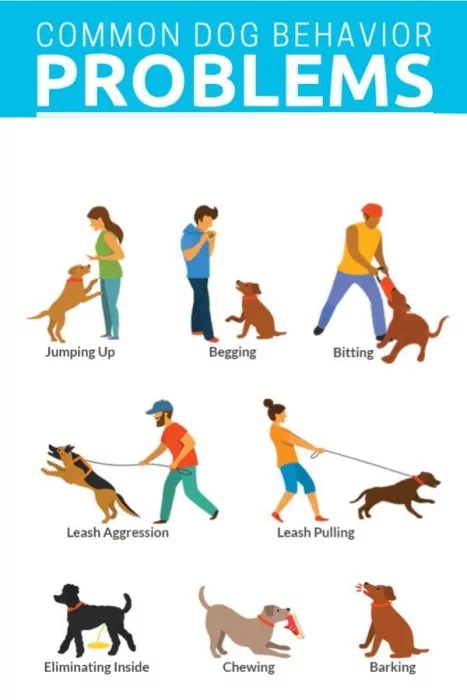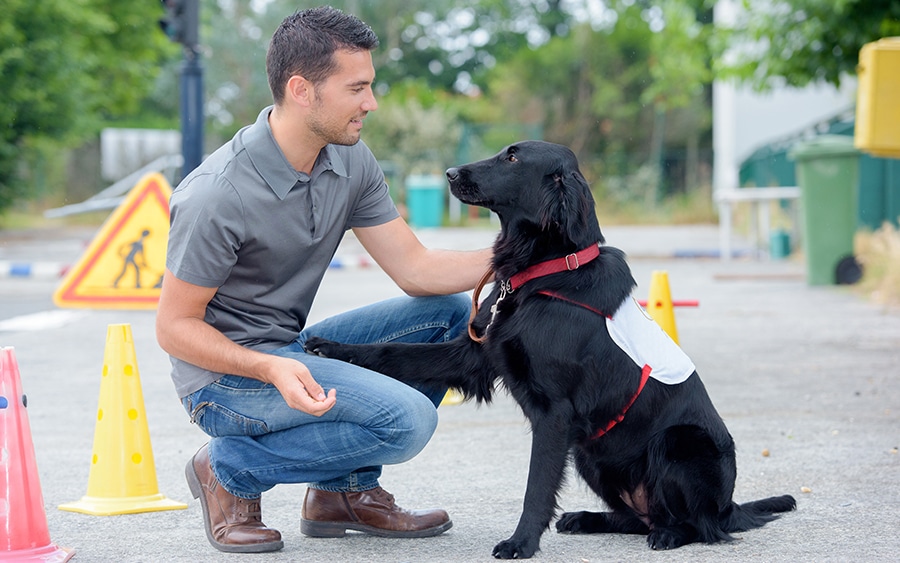The Ultimate Guide to Dog Training Charlotte: Techniques for Success
The Ultimate Guide to Dog Training Charlotte: Techniques for Success
Blog Article
Unlock Your Dog's Prospective: Proven Dog Training Strategies for Success
Efficient pet dog training is a nuanced process that rests on understanding canine habits and using medically backed approaches. Dog training. By including favorable support, developing clear commands, and focusing on socializing, dog proprietors can grow a productive relationship with their pets. However, challenges usually develop that require tailored remedies and a patient strategy. Checking out these confirmed methods exposes not only the possibility for behavior improvement yet additionally the deeper bond that can be created in between proprietor and pet dog. What necessary approaches must be thought about to genuinely open your pet dog's capacity?
Understanding Pet Dog Actions
Understanding pet habits is important for reliable training and promoting a positive partnership in between canines and their owners. A comprehensive grasp of canine body movement, articulations, and social interactions is important for identifying their feelings and needs. Canines connect mainly via non-verbal cues; for instance, a wagging tail may indicate excitement, while pinned ears can indicate worry or submission.

Moreover, environmental elements play a considerable function fit a dog's behavior. Modifications in routine, new environments, or the existence of strange people can result in tension or anxiousness in dogs. Identifying these triggers enables proprietors to minimize adverse responses and develop ideal training approaches.
Eventually, a deep understanding of canine actions lays the structure for effective training methods, enhancing both actions and the general bond in between the pet and its owner. dog training charlotte. This expertise is crucial for fostering a well-adjusted, delighted canine friend
Positive Support Methods
Effective training depends greatly on positive reinforcement strategies, which have actually been revealed to generate considerable cause forming desired habits in pet dogs. This strategy entails compensating a canine for displaying details behaviors, thereby enhancing the possibility that these actions will be duplicated. Benefits can take different forms, consisting of treats, appreciation, playthings, or playtime, relying on what motivates the individual dog.

It is necessary to gradually terminate incentives as the pet learns the habits, transitioning to intermittent support. This method keeps the behavior in time while protecting against dependency on continuous rewards. By focusing on favorable support, fitness instructors can cultivate a relying on partnership with their canines, promoting a healthy and participating training setting that improves overall obedience and efficiency.
Developing Regular Commands
A basic aspect of effective pet training is the facility of constant commands. Uniformity in commands is critical for efficient communication in between the trainer and the pet. When commands are consistent, dogs learn to associate specific words with desired actions, which increases the training procedure and improves understanding.
To establish consistent commands, it is necessary that all relative make use of the same terms and gestures. For instance, if a single person uses "rest" while another claims "take a seat," it can create confusion for the canine. Select clear, unique words for commands and make sure every person associated with the pet dog's training follows these selections.
Additionally, repeating is crucial. Strengthen commands this link through frequent method, guaranteeing that the dog obtains sufficient possibilities to respond correctly. When a pet effectively follows a command, instant positive reinforcement ought to adhere to. This could be in the type of deals with, praise, or playtime, strengthening the link between the command and the action.
Lastly, be client. Developing consistent commands takes time and initiative. With commitment and clearness, you will help your dog develop a strong understanding of assumptions, eventually bring about a mannerly buddy.
Socialization and Direct Exposure
Mingling a pet dog is essential for cultivating a well-adjusted and confident buddy. This procedure includes subjecting your canine to a range of settings, people, and other pets to create their social abilities and versatility. Early socialization, preferably in between the ages of 3 to fourteen weeks, is vital, as it lays the foundation for a pet's future actions.
Throughout socializing, objective to provide positive experiences in different settings, such as parks, busy roads, and homes with various other pets. Introduce your dog to various stimuli, consisting of audios, sights, and smells, making certain that each encounter is satisfying. This exposure aids alleviate concern and anxiousness, leading the way for a more resistant pet dog.
Involving in regulated group play sessions with other pets can additionally improve social skills, teaching your family pet suitable interactions and borders. Prioritizing socializing will significantly add to your dog's total happiness and habits throughout their life.
Conquering Common Educating Difficulties

Canines may struggle to focus find out in busy or strange setups. Slowly desensitize your pet to interruptions by starting training in a quiet environment and gradually introducing even more stimuli as they become efficient.
In addition, behavior problems like leaping or extreme barking can become frustrating. Address these by teaching different behaviors, such as sitting steadly when greeting visitors. Consistency and patience are important; enhance desired actions consistently and prevent scolding, which can result in complication.
Lastly, identify that each canine is unique, and training timelines may vary. Tailor your approach to your dog's specific needs, and seek professional advice if required. With perseverance and the right methods, getting rid of these obstacles can bring about a trained, happy canine friend.
Conclusion
In final thought, unlocking a pet dog's possible necessitates a thorough approach that incorporates advice an understanding of canine behavior, the application of positive reinforcement strategies, and the establishment of regular commands. Early socialization and exposure to varied settings further enhance a pet's flexibility and confidence. By dealing with common training obstacles with customized methods and patience, a participating and harmonious relationship between pet and handler can be fostered, inevitably leading to a mannerly buddy with the ability of thriving in various scenarios.
Reliable dog training is a nuanced process that hinges on recognizing canine actions and utilizing medically backed strategies.Comprehending pet dog behavior is vital for reliable training and promoting a positive connection between pet dogs and their owners.Efficient training depends heavily on positive reinforcement methods, which have been revealed to yield considerable results in forming preferred habits in pets. When commands are consistent, dogs find out to associate details words with wanted behaviors, which increases the training procedure and improves understanding.
In final thought, unlocking a pet dog's potential necessitates a comprehensive strategy that includes an understanding of canine behavior, the application of positive support strategies, and the facility of regular commands.
Report this page